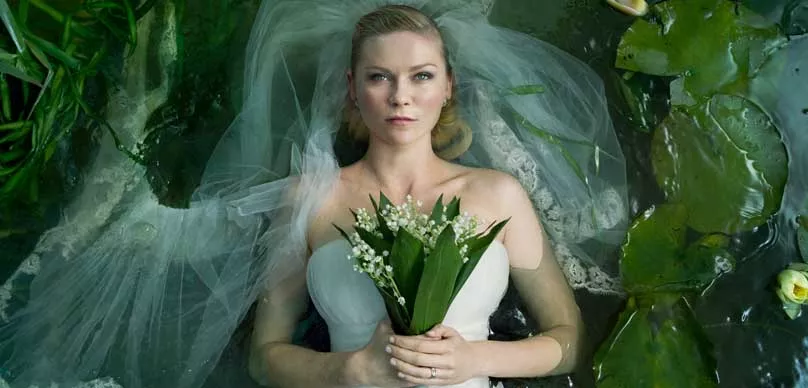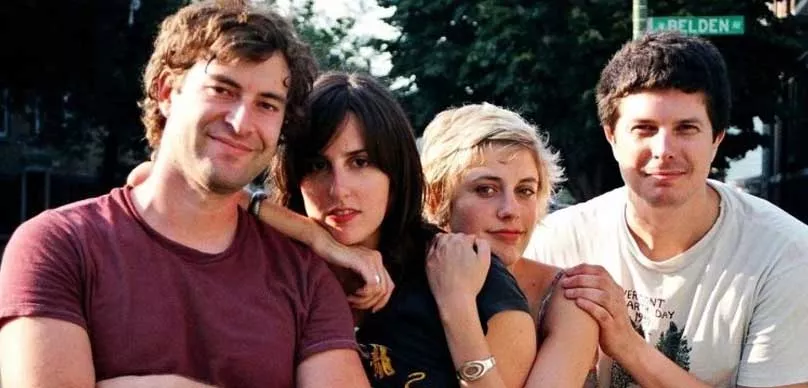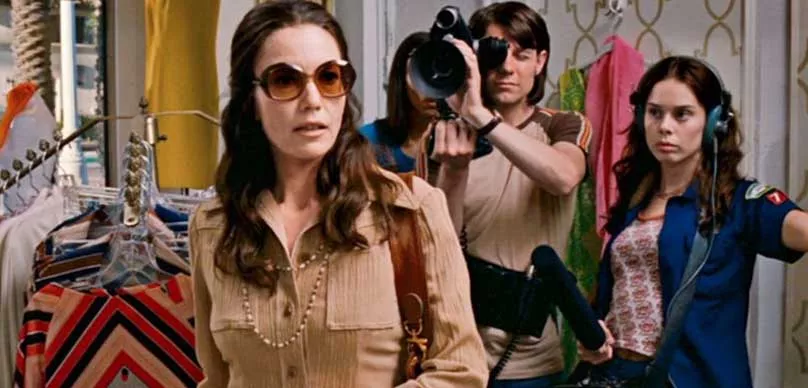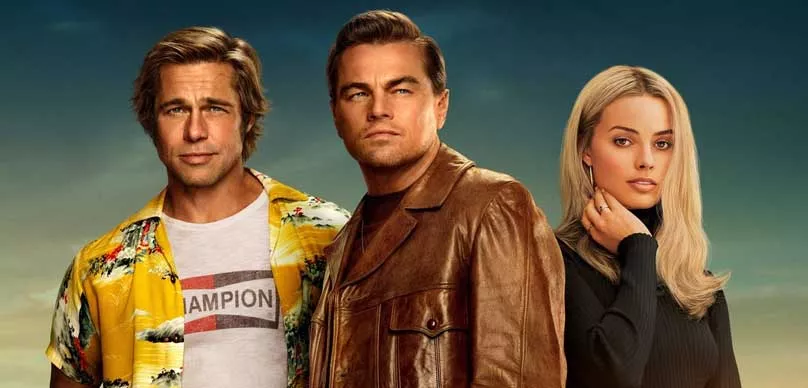The success of 2009’s INGLOURIOUS BASTERDS sent director Quentin Tarantino off on another career-high. It was the realization of an idea that had been a long time coming, with Tarantino purportedly first conceiving the idea around 1994, after the production of PULP FICTION. In 2012, he realized yet another idea he had been developing for a long time. For years, Tarantino had talked about his take on the spaghetti western, a genre that had profoundly influenced him. However, he wanted to use the genre to explore America’s uneasy relationship with slavery using a revenge story set in his native Tennessee—a concept he dubbed a “southern”.
You can read all of Quentin Tarantino’s Screenplays here.
The final result, 2012’s DJANGO UNCHAINED was a massive commercial and critical hit, eclipsing that even of INGLOURIOUS BASTERDS (at least financially). True to the director’s form, its release also ignited a firestorm of controversy over it subject matter and the heavy use of the racially-loaded “N” word. It continued a prestigious phase in his career (one which he currently still enjoys), netting him his second Oscar win for Best Original Screenplay, as well as actor Christoph Waltz’s second consecutive Best Supporting Actor Oscar. Few directors remain relevant within a twenty-year period of their careers, and the fact that Tarantino keeps scoring hit after massively-influential hit is a testament to the man’s innate talent and unique vision.
Set in 1858 in America’s deep South (the antebellum years before the Civil War), DJANGO UNCHAINED concerns itself with the plight of its namesake—a slave named Django (Jamie Foxx) who’s wife was ripped away from him after a failed escape attempt and sent to another plantation, never to return. He is sent to auction himself, but on the way, he is rescued by an eccentric bounty hunter masquerading as a dentist: Dr. King Schultz (Waltz). Schultz needs Django to identify a number of targets he’s pursuing, but soon enough Django proves to be a formidable partner and a skilled bounty hunter in his own right. The pair find Django’s wife—the demure Broomhilda Von Schaft (Kerry Washington)—has taken up residence as a house slave to Calvin Candie (Leonardo DiCaprio), one of Mississippi’s wealthiest and most-feared slave traders. They infiltrate Candie’s plantation compound under the guise of wealthy dealers of gladiator slaves—also known as mandingos—and set about trying to secure Broomhilda’s freedom through duplicitous means. Unbeknownst to them, Calvin’s confidante—an elderly slave named Stephen (Samuel L. Jackson)– senses their treachery and works to root them out before they con his beloved master.
This being a Tarantino film and all, the performances are expectedly top-rate. The part of Django was initially written for Will Smith, but he turned it down because he rather foolishly thought Django wasn’t the lead. Instead, the part went to Jamie Foxx, who is an exponentially better choice. His self-serious, grim demeanor gives the comedic moments an ironic flair, making it all the more hilarious. Foxx always surprises me when he really applies himself to his performances. He seems to have this narcissistic, over-confident persona in public that he continually subverts with the kind of roles he plays in films like RAY (2004) or COLLATERAL (2004). In DJANGO, he is convincing as the humorless badass archetype, but he also shows a considerable ability to poke fun at himself (see the Lord Fauntleroy costume he wears early in the film, which got a huge laugh in the theatre).
Christoph Waltz’s two Oscars have both stemmed from his collaborations with Tarantino, and while I admit I was (pleasantly) surprised to see him take home the gold statue again this year, he certainly earned his keep as Dr. King Schultz. Waltz steals nearly every scene as Schultz, a radically different character from the Col. Hans Landa role he made famous in INGLOURIOUS BASTERDS. He’s still a German, but Schultz sports a full beard and a dandy’s approach to monotone clothing. He’s every bit as eccentric as Landa, prattling on in a verbose manner as he scuttles about the frontier in a rickety wagon with an oversized tooth swinging around on top. However, his jovial nature belies his deadly ferocity as a bounty hunter and marksman. Many thought it would be for hard Waltz to top his performance in INGLOURIOUS BASTERDS, and while I don’t know if this one necessarily supersedes the former, it definitely rivals it.
Tarantino had been trying to work with Leonardo DiCaprio for a while—he had been the first choice to play Landa before Waltz was cast. In a rare villainous turn, DiCaprio plays Calvin Candie as a dandy playboy. A wealthy Southern charmer, DiCaprio hides his villainy behind a warm smile and a hospitable nature. Make no mistake, though—he is a ruthless, volatile man who must not be crossed. DiCaprio commits himself entirely to Tarantino’s demented vision, unabashedly digging into his character’s inbred, racist leanings and nefarious desires. The extent of his commitment can be witnessed in a scene where he smashes a skull in front of his dinner guests, bleeding out all over his hand. During the take used in the film, he cut his hand badly upon smashing the skull, yet continued to stay in character despite his own, very real, blood leaking all over the place.
Tarantino’s supporting cast is rounded out by a cadre of new and familiar faces alike. As Broomhilda, Kerry Washington brings a much-needed sense of femininity to Tarantino’s machismo revenge tale. She appears to Django throughout the film as an ethereal vision amongst the cotton fields, and we feel that we’ve come to know her just as well as the other characters when we finally confront her flesh-and-blood form. Frequent Tarantino performer Samuel L. Jackson is fabulous as Candie’s key confidante, Stephen. Acting under heavy prosthetics and makeup, he assumes an elderly, feeble affectation that enhances the comedic value of his impotent rage and suspicion. After not being prominently featured in a Tarantino film since 1997’s JACKIE BROWN, Jackson’s presence is a welcome one that helps to reinforce Tarantino’s signature charms. Seasoned character actor James Remar plays two roles, one as Ace Speck—a gruff slave poacher—and Candie’s silent associate, the bowler-derby’d Butch Pooch. MIAMI VICE star Don Johnson plays Big Daddy, a rival Colonel Sanders-Esque plantation owner and progenitor of the Klu Klux Klan.
There are also a few notable cameos peppered throughout the film. Jonah Hill is funny and memorable as Big Daddy’s son and a fellow proto-Klansman. DEATH PROOF’s (2007) star Zoe Bell plays a deadly, masked tracker that silently lurks in the fringes of her scenes. She initially had a much larger subplot, but for whatever reason, it was cut and her screen-time became significantly reduced. Michael Parks, who was so memorable as Texas Sheriff Earl McGraw in KILL BILL: VOLUME 1(2003) and DEATH PROOF, plays a sunbaked poacher here. Tarantino himself also pops up in the same scene as an Aussie-accented poacher. The accent isn’t terribly convincing, and he’s carrying a few extra pounds., but I don’t say that as a necessarily bad thing; it’s just a far cry from his well-acted and talkative cameos in PULP FICTION and RESERVOIR DOGS(1992). Even powerful Hollywood directors are subject to the ravages of old age.
I remember when I first saw a trailer to DJANGO UNCHAINED, my immediate reaction was that one could be forgiven for mistaking it for a Terrence Malick film. By this, I mean that DJANGO UNCHAINED is easily Tarantino’s most beautiful film to date. Working again with cinematographer Robert Richardson, he captures the expansive vistas of the West and the sun-dappled willow trees of the South in stunning 35mm filmic beauty. Utilizing the anamorphic 2.35:1 aspect ratio, Tarantino opts for a richly-realized cinematic look, complete with deep contrast and natural earth tones and bold, saturated primary colors. A sepia tint casts a nostalgic glow over the Mississippi sequences during the day, and at night is replaced by handsome amber candlelight that romanticizes the otherwise horrific Candieland plantation.
Flashback sequences are even more stylized, employing a low-contrast bleach-bypass technique to suggest faded, heat-baked film. The camerawork adapts to the scale of the story, favoring sweeping crane shots reminiscent of old spaghetti westerns as well as frenetic rack zooms typical of the grindhouse genre. Tarantino’s signature compositions of characters in profile are considerably less present here than in his previous work.
DJANGO UNCHAINED finds Tarantino working with a host of new collaborators, replacing several of his key craftspeople for reasons unknown to this devastatingly handsome author. For the first time in Tarantino’s career (not counting DEATH PROOF), Lawrence Bender isn’t a producer. This responsibility instead goes to Pilar Savone and Stacey Sher (in addition to regular executive producers Harvey and Bob Weinstein). Tarantino’s usual production designer David Wasco sits out this round as well, with J. Michael Reva filling in to recreate an authentic sense of the antebellum period. Tragically, Reva passed away midway through the shoot, but he leaves behind a strong legacy and a singular vision for Tarantino’s revisionist take on history. And finally, due to Tarantino’s editor Sally Menke passing away in 2010, DJANGO UNCHAINED finds him working with a new editor for the first time since his career began. It remains to be seen whether this new collaborator, Fred Raskin, will become Tarantino’s new Menke, but he more than makes up for the lack of Sally by crafting an explosive, exhilarating edit that proficiently captures Tarantino’s storytelling dynamics in a way that feels continuous with his earlier films.
The soundtrack is classic Tarantino, featuring obscure needle-drops that give the film a unique, offbeat, and vintage vibe. For the first time, Tarantino also uses original songs commissioned for the film (but not an original score). As a result, contemporary artists like John Legend and Rick Ross share album space with Johnny Cash, Wagnerian opera, and the spaghetti western sounds of Ennio Morricone. It’s an incredibly eclectic mix that favors Morricone’s sound more than any others due to the genre it deals in. Oddly enough, Morricone has since stated that he would not desire to work with Tarantino again due to his “incoherent” approach to film music. I would imagine that Tarantino would be greatly dismayed and disappointed to hear one of his heroes and primary influences publicly disparage him in so personal a manner.
Despite its pitch-dark reckoning with America’s original sin of slavery, DJANGO UNCHAINED is absolutely hysterical. One of the best scenes in the film is an extended sequence lampooning the Klu Klux Klan and the absurdity of their disguises.
Like INGLOURIOUS BASTERDS before it, the violence is gleeful to an almost-cartoonish degree. The film is absurdly gory, with veritable geysers of blood vomiting from bullet wounds; the climax even utilizes an expressionistic sound design that likens bullets striking flesh to bombs dropped on loose soil. Despite being grotesque, the violence is almost cathartic in a way. Like the riddling of Hitler’s face with hot lead in INGLOURIOUS BASTERDS before it, the messy obliteration of white slave-owners serves as a safe fantasy for a group of people who were so horribly wronged and dehumanized by their oppressors. It may not be the most tasteful tack to take with such delicate subject matter, but Tarantino exhibits no reservations about being an agent for bloodthirsty indulgence.
With the success of DJANGO UNCHAINED, Tarantino doubled down on the notion that he is one of the world’s greatest filmmakers. The notion of a white man taking revenge on slavery on behalf of the black man is understandably offensive to some (Spike Lee is still furious about it). However, racial relations have always been an integral part of Tarantino’s work, and the only ones who really seem to be offended are the advocates of so-called political correctness (and knee-jerk reactionaries like Spike Lee). Yes, it’s true that the N-word flies around carelessly throughout Tarantino’s work, but he has always leveled with us about why, citing his responsibility to write his characters true to personality—regardless of their own politics. White, black, or Asian, he treats all as equals but has the courage to openly acknowledge that there are social customs, language, and habits exclusive to their respective races. These characters feel inherently authentic, as opposed to a “politically-correct” character who is whitewashed of any racial identity whatsoever.
With each new entry, Tarantino manages to satisfy his acolytes with the continuity of creative/profane dialogue, explosive violence, punchy insert shots, or vintage touches (such as the use of old studio logos at the start of his films). However, he has also become a master of subversion, surprising even those who think they’ve got him all figured out. One never truly knows what they’re in for when they go to see Tarantino’s films, but it can be guaranteed that it’ll be a wild ride.
Unlike his contemporaries, the middle-aged Tarantino isn’t content to rest on his laurels. He’s still actively prepping his next magnum opus, excitedly dropping tidbits to the hungry press that he loves to engage. We don’t know what it is yet (as of this writing) but rest assured it will be every bit as challenging and entertaining as what came before it. DJANGO UNCHAINED marks Tarantino’s eight films, and if his recent comments about stopping at ten films are to be believed, then the world only has two more Tarantino creations to look forward to. But what an incredible set of films those ten will be. Not since Stanley Kubrick has a filmmaker’s oeuvre been so small yet so consistently excellent.
From indie maverick to incendiary provocateur, to seasoned craftsman of international prestige, Tarantino has carved out quite the legacy for himself. Not many people can claim two screenwriting Oscars in one lifetime. He’s reinvigorated the careers of many “washed-up” performers. His characters and dialogue have captured an entire generation’s imagination and woven themselves into the fabric of American pop culture. He could retire tomorrow and still remain one of the most profoundly influential voices of the medium. Quite a remarkable set of accomplishments for a former video-store clerk with no connections, a VCR full of classic films, and a head full of dreams.
Sponsored by: Special.tv – Stream Independent
Author Cameron Beyl is the creator of The Directors Series and an award-winning filmmaker of narrative features, shorts, and music videos. His work has screened at numerous film festivals and museums, in addition to being featured on tastemaking online media platforms like Vice Creators Project, Slate, Popular Mechanics, and Indiewire.
THE DIRECTORS SERIES is an educational collection of video and text essays by filmmaker Cameron Beyl exploring the works of contemporary and classic film directors.








